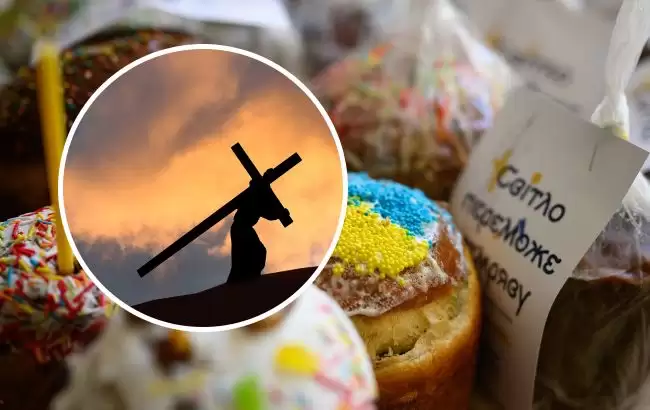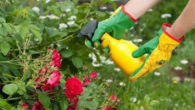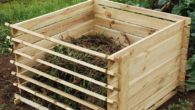
Holy week: what not to do in the last week before Easter
Holy Week (Sedmitsa) or as it is also called – Clean Week – are the last days of Great Lent, which end at Easter. During this period, the Church remembers the Passion of Christ, and believers observe a number of important traditions and strict prohibitions.
The following sources were used in the preparation of the material: Ternopil Diocese of the OCU, “Novyny.LIVE”, Vse Roste, “Volyn 24”, Wikipedia.
What not to do during Holy Week
In In 2024, the Great Lent of Orthodox Christians began on March 18 and will last until May 5 – when the Easter holiday (Resurrection of Jesus Christ) arrives. So, Holy Week among the Orthodox will last from April 29 to May 4.
During Holy Week, which is considered the most important period of the year for Christianity, many services are held in the Church, the Last Supper, suffering, crucifixion and burial of Jesus Christ are remembered.
All days during this period are called “Great” (Great Monday, Holy Tuesday, etc.) or “Passion” and are marked by one or another event from the life of the Son of God.
For true believers, Holy Week is a special time of prayers, repentance and fasting.
In this time is strictly prohibited:
- break the fast (eat dairy and meat dishes, fish and eggs)
- have fun, sing, dance
- arrange holidays (even in honor of a birthday)
- make a wedding
- satisfy intimate desires (which is considered a sin during this period)
- get angry, quarrel, slander, scandal and offend someone
- envy someone
- lie
- refuse someone to help
- engage in hard physical work
What should not be planted during Holy Week
Despite the careful preparations during Holy Week leading up to Easter, Ukrainians also do not forget about the gardening season, which is in full swing during this period. Every householder wants to have time to do as much as possible in order to get a generous harvest later.
According to the beliefs of our ancestors, it is absolutely impossible to work “on the ground” during Holy Week, as it is supposed to be a great sin before God. People believed that at this time the earth “does not receive seeds”, and if it does, “the harvest will be poor”.
At the same time, the priests note –a strict prohibition that would limit the actions of people, in There is no Bible. Based on this, garden and garden work should not be considered a sin, although some still advise to postpone it until after Easter, in order to have enough time for prayers and preparation for the Resurrection of Jesus Christ.
In general, based on from the sowing calendars of gardeners, in April, against the background of low average daily temperatures, it is not recommended to plant in open ground:
- sweet and hot peppers
- zucchini, eggplant, squash< /li>
- cucumbers
- tomatoes
- heat-loving melon crops (watermelon, melon)
- pumpkin crops
- dill, parsley, basil, thyme, sage, chicory
When in Holy Week you can't and you can bake pascha
The main Easter dish – pascha – is baked on Holy Week. According to tradition, it is best to do it on Wednesday, Thursday or Saturday.
This is explained by the fact that it is too early to bake pascha on Monday or Tuesday, and it is not possible to bake it on Good Friday. Since Easter is celebrated on Sunday, the above-mentioned three days remain.
Therefore, this year it is best to bake Easter on May 1, 2 or 4.
According to folk according to customs, on Wednesday evening you can set the oven, and in the morning – on Maundy Thursday – bake. If you plan to bake a lot of paschas, you can bake on Saturdays, in addition to Wednesday and Thursday.
It is important to remember that baking Easter paschas should be done with sincere prayer and pure thoughts. You can't fight or shout around the dough either.
On which day of Holy Week you can't go to the cemetery
In general, there are no strict rules in Ukraine about when exactly you should go to the cemetery. It can be done on any day of the year – when it is convenient for you.
The best time for cleaning the cemetery is Radonitsa (farewell) – the day of the church-wide commemoration of the deceased, which is celebrated in the second week after Easter (on the 9th day). It is then that people traditionally go to cemeteries to pray for their loved ones, clean graves or plant flowers.
If we talk about Easter week, then on this day it is better to go to the church to pray and cleanse spiritually. Visiting the cemetery during Holy Week is not recommended.
According to popular belief, the last day before Easter, when you can clean the cemetery, is the Saturday before Palm Sunday.
< Despite this, many people clean the graves of loved ones early in the morning on the Saturday before Easter. Some emphasize that it is a time when it is important to observe fasting and religious norms.









Leave a Reply